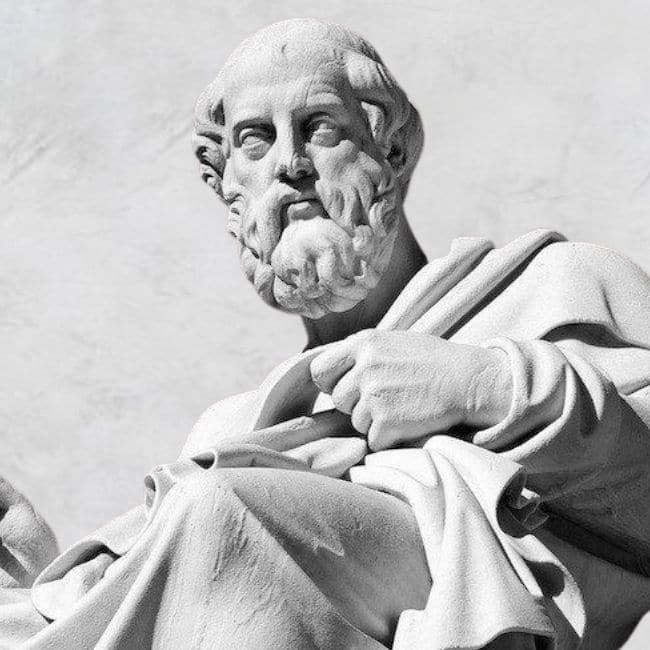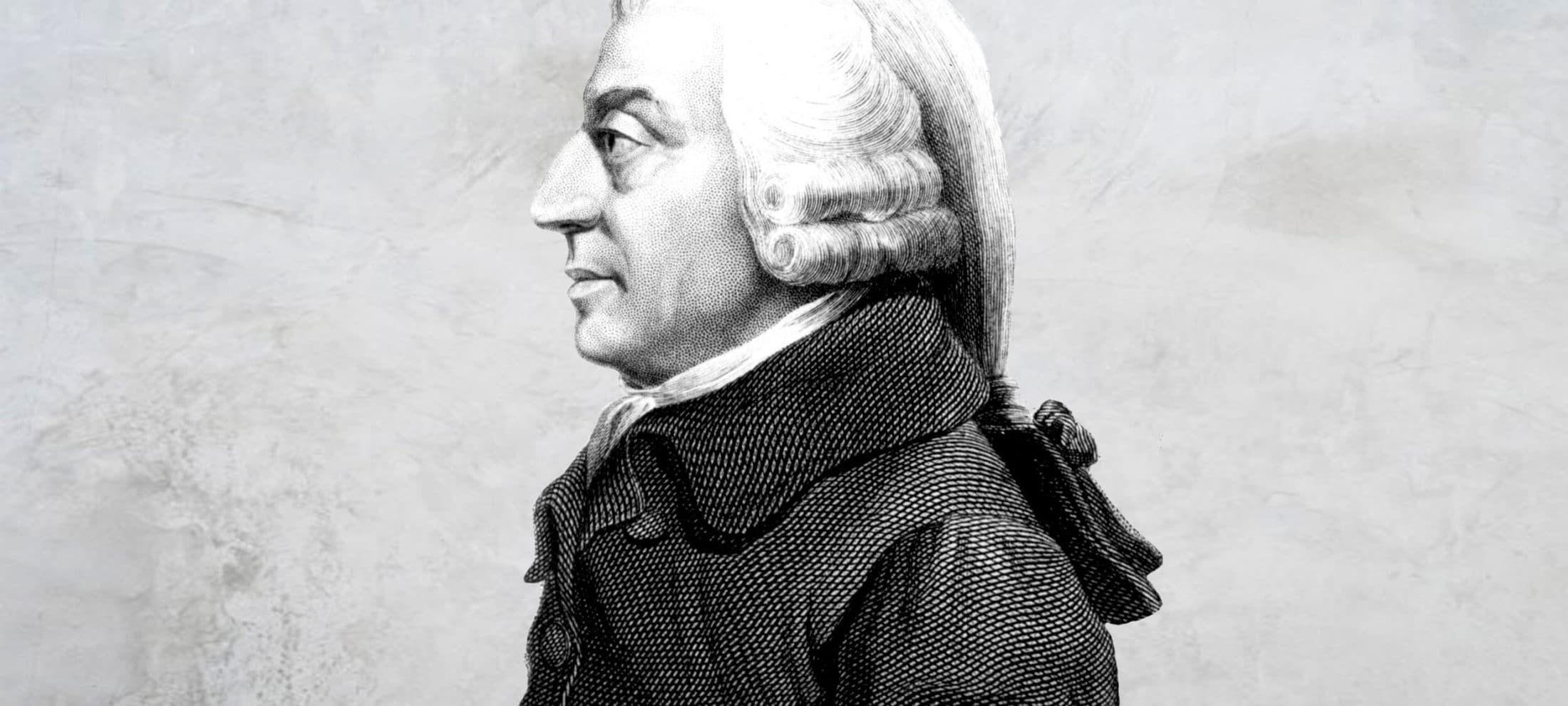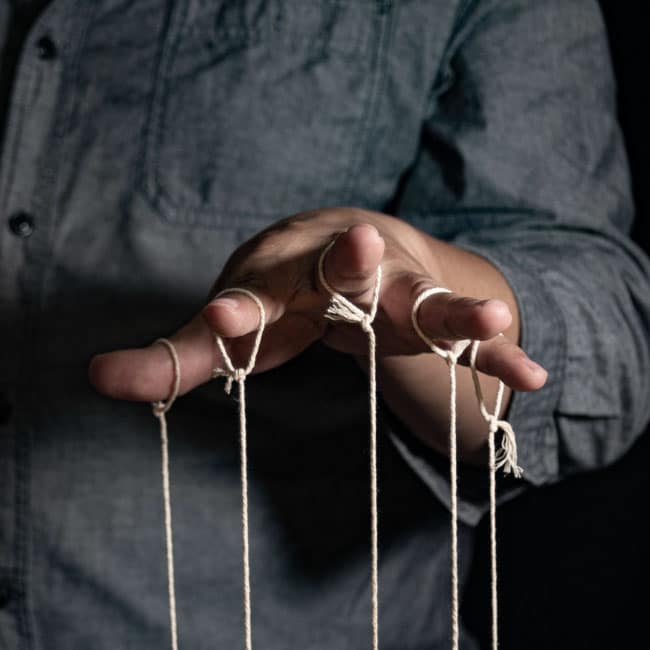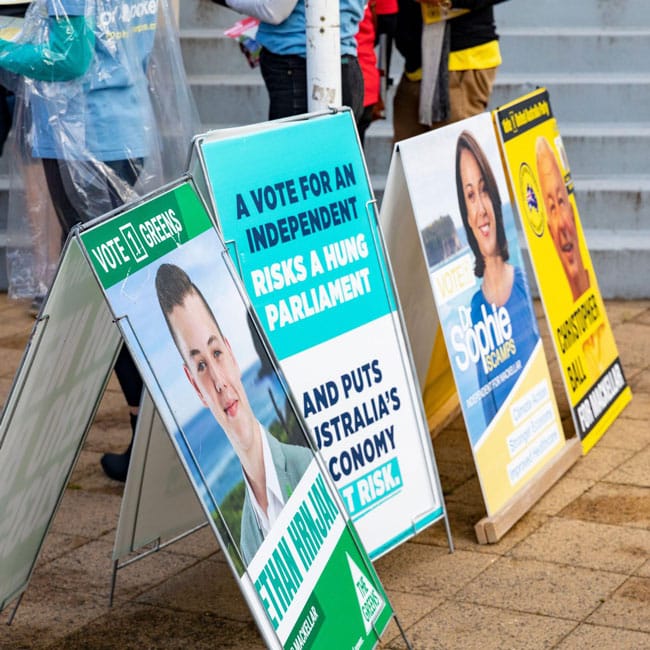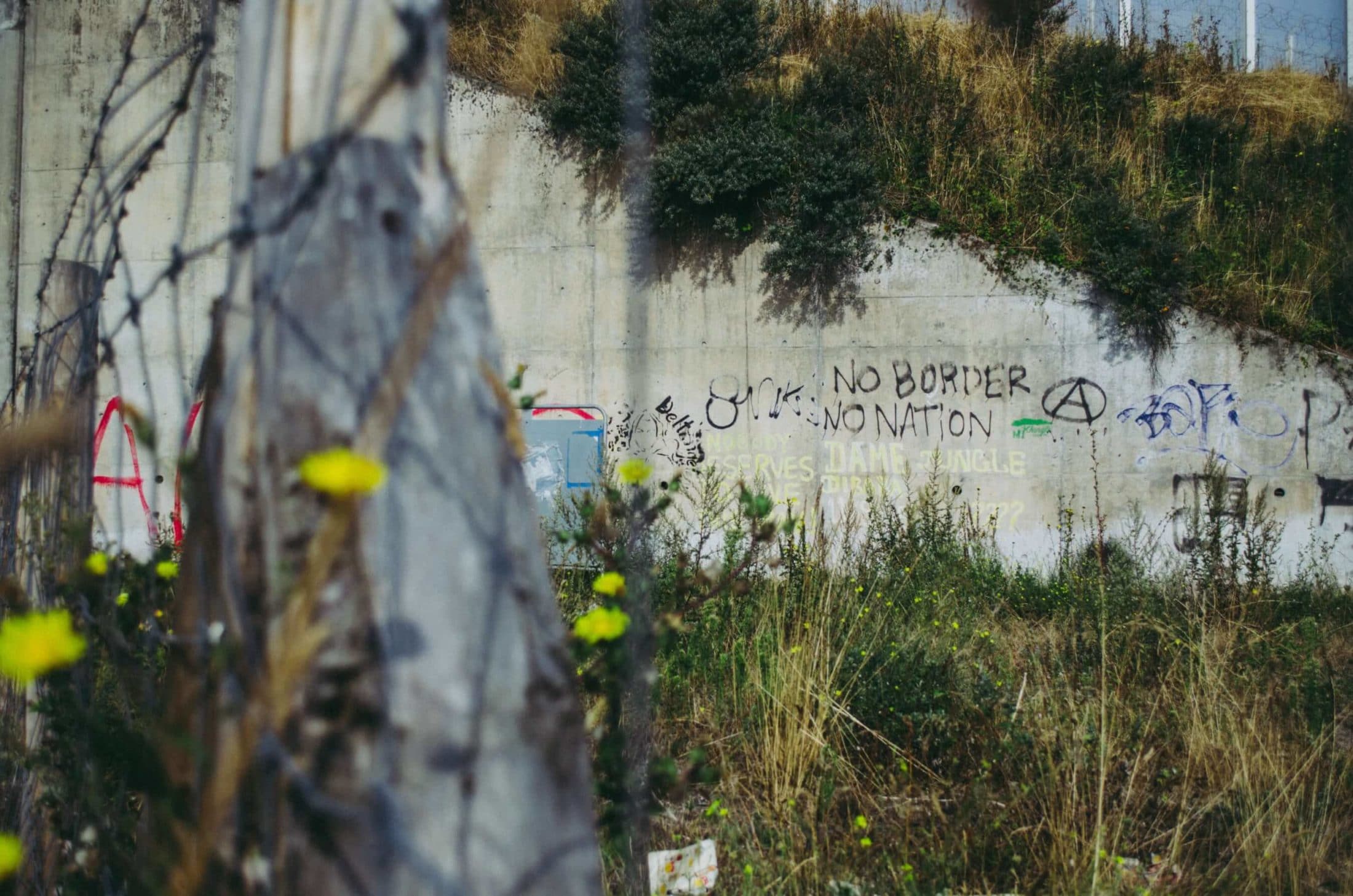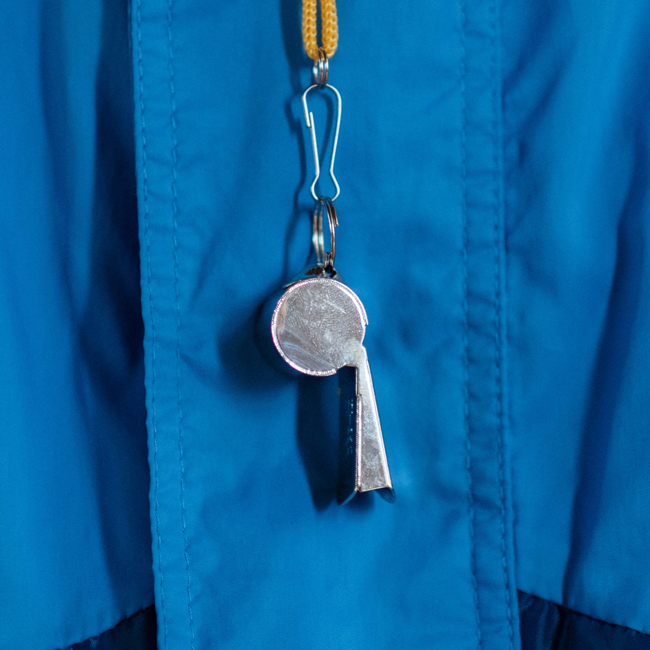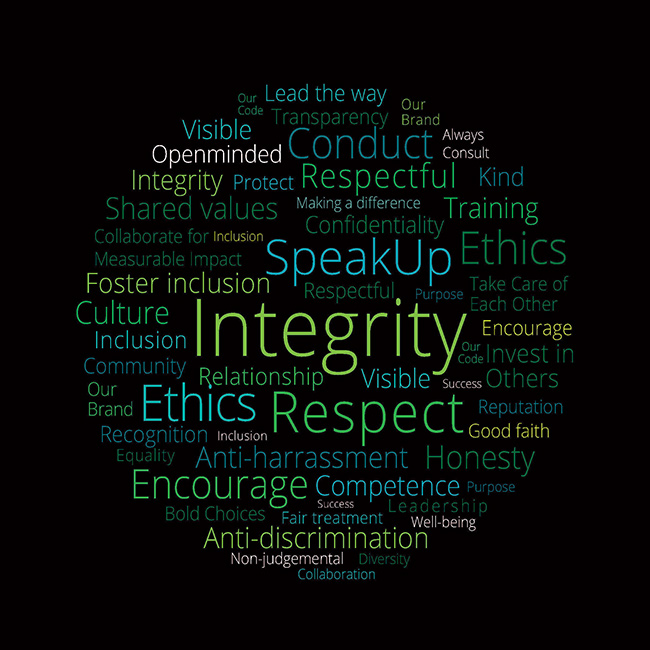The case for reskilling your employees

The case for reskilling your employees
Opinion + AnalysisBusiness + Leadership
BY The Ethics Alliance 5 NOV 2021
Futureproofing the workforce doesn’t just make good business sense, it simply makes sense, writes Paul Rodger.
Like it or not, we’re in the middle of a skills revolution. The effects of digital transformation, environmental change and economic uncertainty have disrupted conventional career pathways, causing businesses to question what skills the workforce needs now and tomorrow.
According to the World Economic Forum’s Future of Jobs Report, as many as 75 million jobs are expected to be displaced by 2022 in 20 major economies. The good news: the report predicts a net increase in jobs by next year – driven by a demand for new capabilities. The bad news: 54 per cent of all employees will need to reskill or upskill in order to meet the demand.
If the global pandemic has taught us anything, it’s that companies are capable of making decisions that can have a good social outcome, even if their motive is ultimately self-interest. Sometimes, doing the right thing just makes business sense.
“Most businesses are actually ethical in nature because to be otherwise is high risk,” says behavioural scientist Dr Attracta Lagan. “Businesses put systems and processes in place to maintain ethical standards, because it’s counter-productive for them not to do so.”
For James Mcilvena, Managing Director of Lee Hecht Harrison (LHH) South APAC, an employment advisory firm specialising in organisational transformation, the question of who should reskill workforces is a no-brainer. “Leaving aside for a moment the kudos that come with doing the right thing, it makes financial good sense for organisations to upskill and reskill their people,” he says.
Aside from keeping institutional knowledge within a business, there is the simple benefit that upskilling and reskilling workers can be done for significantly lower cost than undergoing a restructure, paying out redundancies, and then hiring new staff and onboarding them. Workers need to be considered renewable, not replaceable, Mcilvena says. “Treating people as single-use, like you would a plastic kitchen set, doesn’t make sense from a corporate social responsibility perspective,” he adds.
“Treating people as single-use, like you would a plastic kitchen set, doesn’t make sense from a corporate social responsibility perspective.”
– James Mcilvena, LHH South APAC
Employees who have worked for an organisation for several years have a knowledge of that organisation’s needs, protocols and partner relationships that can’t easily be replicated. An organisation with a flexible and committed workforce is also one that can readily adapt to new shifting business paradigms.
Retaining staff by equipping them with the means to take on new skills has the added advantage of helping a business attract new talent. Staff members who experience the benefits of ongoing career development will usually share their positive experiences with others. Instilling a culture of professional growth can thus help strengthen an organisation’s reputation and bring in new candidates who value reskilling and upskilling opportunities.
“Boards should be kicking arse if management isn’t looking at these aspects of their workforce management,” says Mcilvena.
The need for businesses to stay on the front foot is a view shared by Adecco Group ANZ CEO Preeti Bajaj, who states that organisations’ ability to adapt to digital transformation depends on their levels of maturity.
“We at Adecco work with a spectrum of companies from proactive companies through to those who react in the moment,” she says. “Those that have greater maturity in understanding the reskilling/upskilling challenge have already made the case for workplace change – they have made the case to us and they also drive it internally themselves.”
“[Companies] that have greater maturity in understanding the reskilling/upskilling challenge have already made the case for workplace change.”
– Preeti Bajaj, Adecco Group ANZ CEO
Bajaj strikes a positive note for businesses that have been able to reimagine capitalism and place good outcomes for workers alongside earning a profit. She puts forward the example of Unilever as a company that has successfully reshaped its business around sustainability and practices designed to encourage and retain staff.
“The important point to make is that digital disruption is driving the structural shifts that are forcing organisations back to the drawing board. We’re seeing organisations reshape their business models and using that as an opportunity to incorporate sustainable workplace practices into those business models,” says Bajaj.
Change for the good
When considering the role organisations have to play in safeguarding the employability of their staff we must take into account the interdependent relationship that exists between business and society. “Work is such a major institution that it isn’t right to separate the world of work from the rest of society,” says Dr Lagan. “Big companies around the world recognise that they have an ethical responsibility to ensure that their employees remain employable – if not with them directly, then with someone else.”
Barriers to change exist, as is often the case when there is a need to recalibrate long-held assumptions. Companies must start to consider staff reskilling programs as an investment rather than an expense on a P&L sheet. They must have confidence in their workforce analytics so they can understand what skills they need of their staff – and generate a roadmap so they can equip them with those skills. Governments, too, have a role to play in incentivising businesses, but they need to think beyond short-term election cycles.
On the flipside, there is agreement on how organisations can more readily adapt to change, such as recognising the need for reskilling and upskilling considerations to move outside of HR departments and have them form part of a wider organisational strategy – complete with input by boards and senior management.
“These days organisations need to be learning organisations – everyone needs to have the opportunity to reskill themselves in tune with changes in the marketplace,” says Dr Lagan. “Remember that the technological shifts we’re seeing at the moment can be both an enabler and a threat to employability,” she says. “At the end of the day, to apply an ethical business lens is to make a choice – and the best choice a business can make is one that impacts positively on their employees and wider society.”
“The technological shifts we’re seeing at the moment can be both an enabler and a threat to employability.”
– Dr Attracta Lagan, Co-Principal at Managing Values
Why you should prioritise retaining – not replacing – your employees
• Businesses have a responsibility to ensure their employees remain employable.
• They’re well-placed to understand what skills are needed in future.
• Failure to keep staff acts as a burden to governments, family support networks and an underfunded mental health system.
• Employees are inspired to work for an organisation with social purpose.
• The market will reward businesses whose reskilling programs allow them to remain competitive.
• A culture of upskilling allows for adoption of new technological solutions and innovative business practices.
• Providing personalised career pathways for staff is appealing to the next generation of talent.
62% think businesses have a duty of care to reskill workers whose roles will be made redundant by automation.
– The Ethics Alliance Business Pulse survey
Reflection from Dr Simon Longstaff, Executive Director of The Ethics Centre
Economies are on the brink of changes that will be at least as profound as the Industrial Revolution in their impact on individuals and whole societies. Technological innovation has the capacity to reshape the world of work, finally relieving humans of the drudgery, exposure to danger and the back-breaking labour that has characterised the work of many, for millennia.
However, the promise of a ‘golden age’ casts a long shadow for those who might be displaced by the automated systems and robots that will usher in almost unimaginable prosperity. Indeed, if any force will slow the process of innovation, it will be the political weight of people who fear (rather than embrace) the future.
It follows that every business (and society as a whole) has a vested interest in ensuring that change is carefully managed in a just and orderly manner.
This article was published as part of Matrix Magazine, an initiative of The Ethics Alliance.
Ethics in your inbox.
Get the latest inspiration, intelligence, events & more.
By signing up you agree to our privacy policy
You might be interested in…
Opinion + Analysis
Business + Leadership
It’s time to talk about life and debt
Opinion + Analysis
Business + Leadership
How ‘ordinary’ people became heroes during the bushfires
Opinion + Analysis
Business + Leadership, Politics + Human Rights
Australia’s fiscal debt will cost Gen Z’s future
Opinion + Analysis
Business + Leadership
It’s time to consider who loses when money comes cheap
BY The Ethics Alliance
The Ethics Alliance is a community of organisations sharing insights and learning together, to find a better way of doing business. The Alliance is an initiative of The Ethics Centre.
Big Thinker: Plato

Plato (~428 BCE—348 BCE) is commonly considered to be one of the most influential writers in the history of philosophy.
Along with his teacher, Socrates, and student, Aristotle, Plato is among the most famous names in Western philosophy – and for good reason. He is one of the only ancient philosophers whose entire body of work has passed through history in-tact over the last 2,400 years, which has influenced an incredibly wide array of fields including ethics, epistemology, politics and mathematics.
Plato was a citizen of Athens with high status, born to an influential, aristocratic family. This led him to be well-educated in several fields – though he was also a wrestler!
Influences and writing
Plato was hugely influenced by his teacher, Socrates. Luckily, too, because a large portion of what we know about Socrates comes from Plato’s writings. In fact, Plato dedicated an entire text, The Apology of Socrates, to giving a defense of Socrates during his trial and execution.
The vast majority of Plato’s work is written in the form of a dialogue – a running exchange between a few (often just two) people.
Socrates is frequently the main speaker in these dialogues, where he uses consistent questioning to tease out thoughts, reasons and lessons from his “interlocutors”. You might have heard this referred to as the “Socratic method”.
This method of dialogue where one person develops a conversation with another through questioning is also referred to as dialectical. This sort of dialogue is supposed to be a way to criticise someone’s reasoning by forcing them to reflect on their assumptions or implicit arguments. It’s also argued to be a method of intuition and sometimes simply to cause puzzlement in the reader because it’s unclear whether some questions are asked with a sense of irony.
Plato’s revolutionary ideas span many fields. In epistemology, he contrasts knowledge (episteme) with opinion (doxa). Interestingly, he says that knowledge is a matter of recollection rather than discovery. He is also said to be the first person to suggest a definition of knowledge as “justified true belief”.
Plato was also very vocal about politics, though many of his thoughts are difficult to attribute to him given the third person dialogue form of his writings. Regardless, he seems to have had very impactful perspectives on the importance of philosophy in politics:
“Until philosophers rule as kings or those who are now called kings and leading men genuinely and adequately philosophize, that is, until political power and philosophy entirely coincide, while the many natures who at present pursue either one exclusively are forcibly prevented from doing so, cities will have no rest from evils, … nor, I think, will the human race.”
Allegories
You might have also heard of The Allegory of the Cave. Plato reflected on the idea that most people aren’t interested in lengthy philosophical discourse and are more drawn to storytelling. The Allegory of the Cave is one of several stories that Plato created with the intent to impart moral or political questions or lessons to the reader.
The Ring of Gyges is another story of Plato’s that revolves around a ring with the ability to make the wearer invisible. A character in the Republic proposes this idea and uses it to discuss the ethical consequences of the item – namely, whether the wearer would be happy to commit injustices with the anonymity of the ring.
This kind of ethical dilemma mirrors contemporary debates about superpowers or anonymity on the internet. If we aren’t able to be held accountable, and we know it, how is that likely to change our feelings about right and wrong?
The Academy
The Academy was the first institution of higher learning in the Western world. It was founded by Plato some time after he turned 30, after inheriting the property. It was free and open to the public, at least during Plato’s time, and study there consisted of conversations and problems posed by Plato and other senior members, as well as the occasional lecture. The Academy is famously where Aristotle was educated.
After Plato’s death, the Academy continued to be led by various philosophers until it was destroyed in 86 BC during the First Mithridatic War. However, Platonism (the philosophy of Plato) continued to be taught and revived in various ways and has had a lasting impact on many areas of life continuing today.
Ethics in your inbox.
Get the latest inspiration, intelligence, events & more.
By signing up you agree to our privacy policy
You might be interested in…
Opinion + Analysis
Climate + Environment, Relationships
“Animal rights should trump human interests” – what’s the debate?
Big thinker
Politics + Human Rights, Relationships
Big Thinker: Adam Smith
WATCH
Relationships
Moral intuition and ethical judgement
Opinion + Analysis
Relationships, Society + Culture
Based on a true story: The ethics of making art about real-life others
BY The Ethics Centre
The Ethics Centre is a not-for-profit organisation developing innovative programs, services and experiences, designed to bring ethics to the centre of professional and personal life.
Ethics Explainer: Epistemology

Mostly, we take “knowledge” or “knowing” for granted, but the philosophical study of knowledge has had a long and detailed history that continues today.
We constantly claim to ‘know things’. We know the sun will rise tomorrow. We know when we drop something, it will fall. We know a factoid we read in a magazine. We know our friend’s cousin’s girlfriend’s friend saw a UFO that one time.
You might think that some of these claims aren’t very good examples of knowledge, and that they’d be better characterised as “beliefs” – or more specifically, unjustified beliefs. Well, it turns out that’s a pretty important distinction.
“Epistemology” comes from the Greek words “episteme” and “logos”. Translations vary slightly, but the general meaning is “account of knowledge”, meaning that epistemology is interested in figuring out things like what knowledge is, what counts as knowledge, how we come to understand things and how we justify our beliefs. In turn, this links to questions about the nature of ‘truth’.
So, what is knowledge?
A well-known, though still widely contentious, view of knowledge is that it is justified true belief.
This idea dates all the way back to Plato, who wrote that merely having a true belief isn’t sufficient for knowledge. Imagine that you are sick. You have no medical expertise and have not asked for any professional advice and yet you believe that you will get better because you’re a generally optimistic person. Even if you do get better, it doesn’t follow that you knew you were going to get better – only that your belief coincidentally happened to be true.
So, Plato suggested, what if we added the need for a rational justification for our belief on top of it being true? In order for us to know something, it doesn’t just need to be true, it also needs to be something we can justify with good reason.
Justification comes with its own unique problems, though. What counts as a good reason? What counts as a solid foundation for knowledge building?
The two classical views in epistemology are that we should rely on the perceptual experiences we gain through our senses (empiricism) or that we should rely first and foremost on pure reason because our senses can deceive us (rationalism). Well-known empiricists include John Locke and David Hume; well-known rationalists include René Descartes and Baruch Spinoza.
Though Plato didn’t stand by the justified true belief view of knowledge, it became quite popular up until the 20th century, when Edmund Gettier blew the problem wide open again with his paper “Is Justified True Belief Knowledge?”.
Since then, there has been very little consensus on the definition, with many philosophers claiming that it’s impossible to create a definition of knowledge without exceptions.
Some more modern subfields within epistemology are concerned with the mechanics of knowledge between people. Feminist epistemology, and social epistemology more broadly, deals with a lot of issues that raise ethical questions about how we communicate and perceive knowledge from others.
Prominent philosophers in this field include Miranda Fricker and José Medina. Fricker developed the concept of “epistemic injustice”, referring to injustices that involve the production, communication and understanding of knowledge.
One type of knowledge-based injustice that Fricker focuses on, and that has large ethical considerations, is testimonial injustice. These are injustices of a kind that involve issues in the way that testimonies – the act of telling people things – are communicated, understood, believed. It largely involves the interrogation of prejudices that unfairly shape the credibility of speakers.
Sometimes we give people too much credibility because they are attractive, charismatic or hold a position of power. Sometimes we don’t give people enough credibility because of a race, gender, class or other forms of bias related to identity.
These types of distinctions are at the core of ethical communication and decision-making.
When we interrogate our own views and the views of others, we want to be asking ourselves questions such as: Have I made any unfair assumptions about the person speaking? Are my thoughts about this person and their views justified? Is this person qualified? Did I get my information from a reliable source?
In short, a healthy degree of scepticism (and self-examination) should be used to filter through information that we receive from others and to question our initial attitudes towards information that we sometimes take for granted or ignore. In doing this, we can minimise misinformation and make sure that we’re appropriately treating those who have historically been and continue to be silenced and ignored.
Ethics draws attention to the quality and character of the decisions we make. We typically hold that decisions are better if well-informed … which is another way of saying that when it comes to ethics, knowledge matters!
Ethics in your inbox.
Get the latest inspiration, intelligence, events & more.
By signing up you agree to our privacy policy
You might be interested in…
Opinion + Analysis
Health + Wellbeing, Relationships
Why your new year’s resolution needs military ethics
Opinion + Analysis
Relationships, Science + Technology
Injecting artificial intelligence with human empathy
Opinion + Analysis
Relationships
How to give your new year’s resolutions more meaning
Explainer
Relationships
Ethics Explainer: Begging the question
BY The Ethics Centre
The Ethics Centre is a not-for-profit organisation developing innovative programs, services and experiences, designed to bring ethics to the centre of professional and personal life.
Big Thinker: Francesca Minerva

Big Thinker: Francesca Minerva
Big thinkerPolitics + Human RightsScience + Technology
BY The Ethics Centre 27 OCT 2021
Francesca Minerva is a contemporary bioethicist whose work largely includes medical ethics, technological ethics, discrimination and academic freedom.
A research Fellow at the University of Milan and the co-founder and co-editor of the Journal of Controversial Ideas, Francesca Minerva has published extensively within the field of applied ethics on topics such as cryonics, academic freedom, conscientious objection, and lookism. But she is best (if somewhat reluctantly) known for her work on the topic of abortion.
Controversy over ‘After-birth Abortion’
In 2012, Minerva and Alberto Giubilini wrote a paper entitled ‘After-birth Abortion: why should the baby live?’ The paper discussed the moral status of foetuses and newborn babies and argued that after-birth abortion (more commonly known as infanticide) should be permissible in all situations where abortion is permissible.
In the parts of the world where it is legal, abortion may be requested for a number of reasons, some having to do with the mother’s well-being (e.g., if the pregnancy poses a risk to her health, or causes emotional or financial stress), others having to do with the foetus itself (e.g., if the foetus is identified as having a chromosomal or developmental abnormality).
Minerva and Giubilini argue that if it’s permissible to abort a foetus for one of these reasons, then it should also be permissible to “abort” (i.e., euthanise) a newborn for one of these reasons.
This is because they argue that foetuses and newborns have the same moral status: Neither foetuses nor newborns are “persons” capable of attributing (even) basic value to their life such that being deprived of this life would cause them harm.
This is not an entirely original argument. Minerva and Giubilini were mainly elaborating on points made decades ago by Peter Singer, Michael Tooley and Jeff McMahan. And yet, ‘After-birth Abortion’ drew the attention of newspapers, blogs and social media users all over the world and Minerva and Giubilini quickly found themselves at the centre of a media storm.
In the months following the publication, they received hundreds of angry emails from the public, including a number of death threats.
The controversy also impacted their careers: Giubilini had a job offer rescinded and Minerva was not offered a permanent job in a philosophy department because members of the department “were strongly opposed to the views expressed in the paper”. Also, since most of the threatening emails were sent from the USA, they were advised not to travel to the USA for at least a year, meaning that they could not attend or speak at academic conferences being held there during that period.
So why did ‘After-birth Abortion’ attract so much attention compared to older publications on the same topic? While the subject matter is undoubtedly controversial, Minerva believes the circulation of the paper had more to do with the internet than with the paper itself.
Academic Freedom and the Journal of Controversial Ideas
“The Web has changed the way ideas circulate.” Ideas spread more quickly and reach a much wider audience than they used to. There is also no way to ensure that these ideas are reported correctly, particularly when they are picked up by blogs or discussed on social media. As a result, ideas may be distorted or sensationalised, and the original intent or reasoning behind the idea may be lost.
Minerva is particularly concerned about the impact that this may have on research, believing that fear of a media frenzy may discourage some academics from working on topics that could be seen as controversial. She believes that, in this way, the internet and mass media may pose a threat to academic freedom.
“Research is, among many other things, about challenging common sense, testing the soundness of ideas that are widely accepted as part of received wisdom, or because they are held by the majority of people, or by people in power. The proper task of an academic is to strive to be free and unbiased, and we must eliminate pressures that impede this.”
In an effort to eliminate some of this pressure, Minerva co-founded the Journal of Controversial Ideas, alongside Peter Singer and Jeff McMahan. As the name suggests, the journal encourages submissions on controversial topics, but allows authors to publish under a pseudonym should they wish to.
The hope is that by allowing authors to publish under a false name, academics will be empowered to explore all kinds of ideas without fearing for their well-being or their career. But ultimately, as Minerva says, “society will benefit from the lively debate and freedom in academia, which is one of the main incubators of discoveries, innovations and interesting research.”
Ethics in your inbox.
Get the latest inspiration, intelligence, events & more.
By signing up you agree to our privacy policy
You might be interested in…
Opinion + Analysis
Science + Technology, Health + Wellbeing
Does your therapy bot really care about you? The risks of offloading emotional work to machines
Opinion + Analysis
Politics + Human Rights
If you don’t like politicians appealing to voters’ more base emotions, there is something you can do about it
Opinion + Analysis
Politics + Human Rights
A good voter’s guide to bad faith tactics
Opinion + Analysis
Politics + Human Rights
Orphanage ‘voluntourism’ makes school students complicit in abuse
BY The Ethics Centre
The Ethics Centre is a not-for-profit organisation developing innovative programs, services and experiences, designed to bring ethics to the centre of professional and personal life.
COP26: The choice of our lives
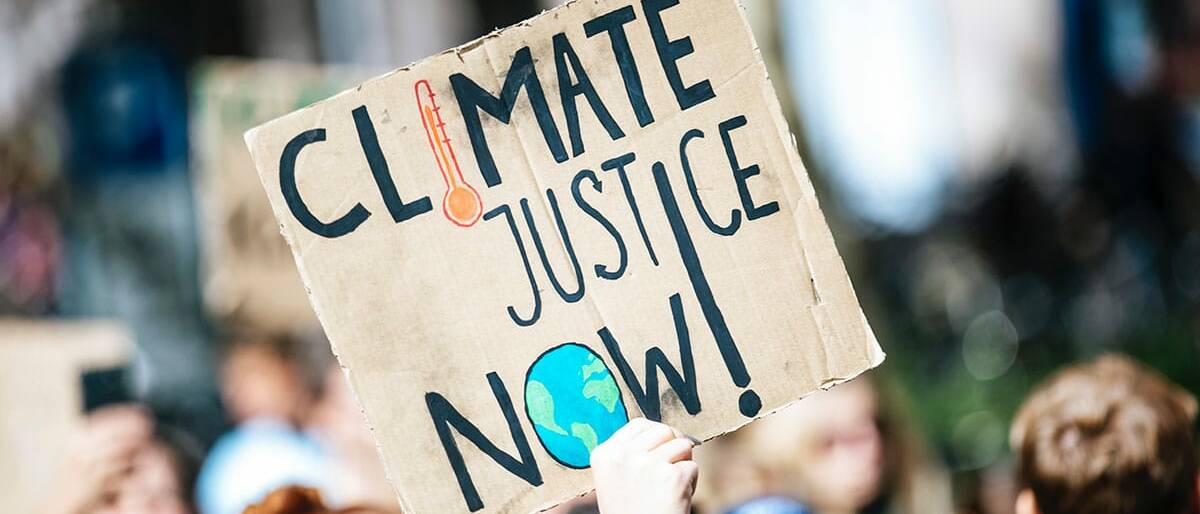
COP26: The choice of our lives
Opinion + AnalysisPolitics + Human Rights
BY Simon Longstaff 25 OCT 2021
There is such a thing as truth. It might be difficult to discern.
Aspects of the truth might vary depending on one’s perspective. However, there are some things that can be known with a certainty sufficient to guide practical action. One of those truths is that life is fragile. The more complex its form, the greater its vulnerability. In the web of life, the severing of one strand can lead the whole to unravel. Cataclysmic failure is not inevitable. It’s just possible – and that is worth knowing. Those who gamble with life take a mighty risk.
In ethics – facts matter. They really matter. Too often, they are ignored by those who think that good intentions are enough. By themselves, good intentions are not enough.
These and other matters are worth bearing in mind as a selection of the world’s leaders gather in Glasgow for COP26. The overwhelming consensus of the world’s leading climate scientists is that life-as-we-know-it is imperiled by the cumulative effects of greenhouse gases. We, humans, are the major source of those emissions. We are the most powerful force on this planet. Our choices shape and make the world what it is.
Ethics is about how these choices are made. It identifies and examines the drivers of choice and ultimately helps us to discern what is good or bad, right or wrong, in the choices we make. At its most fundamental level, ethics underpins the world we make.
So, in every respect, what happens in Glasgow is a matter of ethics.
It is also a matter of politics – and this is where the divorce between ‘ethics’ and ‘politics’ is a cause for concern. The division was never intended to be as great as it has become. For Aristotle, ‘ethics’ and ‘politics’ were intended to be two sides of the same coin. Ethics was concerned with questions about the good life for an individual. Politics was also concerned about questions to do with the good life – but as applied to the community as a whole.
In the lead up to COP26 in Glasgow, we have witnessed a very partial kind of politics that has no apparent concern for the national interest. Instead, the debate about climate change has been recast as a contest between country and city.
In prosecuting their case, the National Party has sought to remain part of the national government while simultaneously trashing the most basic obligation of governments: that they govern for the sake of all.
I should make it clear that when it comes to climate policy, the Ethics Centre has been one of the earliest and most steadfast advocates for a just and orderly transition to a more sustainable future – for everyone affected, not just those living under the National Party’s wing.
The attempt to weaken Australia’s position in Glasgow hinges on a couple of arguments. First, the claim is made that anything Australia does to reduce its contribution to global warming will be ‘futile’ – as our national impact is tiny in comparison to major polluters such as China and India. Second, it is argued that the cost to the economy is just too great to bear – especially for those working in ‘climate exposed’ industries. The National Party then adds to this critique by stating that people living in the cities are asking their country cousins to carry a disproportionate share of the burden.
History reveals what is wrong with such arguments. For example, consider the decision, by a Labor Government, unilaterally to slash tariffs and embark upon an ambitious program to promote free trade. The decision to do so was grounded in a commitment to the national interest and the reasonable belief that, in the long term, the benefits would outweigh the costs – and be shared by all. Back then (as now), Australia represented only around 3% of global trade. In that sense, slashing Australian tariffs could have been presented as a ‘futile gesture’. After all, why cut tariffs in advance of the world’s major economies? And that argument was made by those who opposed trade liberalisation at the time – the Coalition parties.
So, who are the major beneficiaries of free trade? It is the people whom the National Party claims to represent; those working in agriculture, mining and minerals. Who paid the price? Hundreds of thousands of people who lost their jobs in manufacturing – mostly in industries like textiles, clothing, footwear, automotive, etc. And where did most of these people live? In metropolitan areas. So it has been ever since. Australia’s free trade deals inevitably aim to maximise the incomes of people living in rural and regional Australia while leaving the price to be paid by people living in the cities.
Have we heard anyone from the National Party offering sympathy for those who have paid such a high price for regional prosperity? Not a word. Indeed, not a word from anyone. Why the silence? Well, you could put it down to political indifference. Or, it could be that there is now a broad consensus that despite the pain of transition (which typically has been disorderly and unjust), the national interest has been served.
Which brings us back to Glasgow.
Nearly everyone – other than the Federal Government – seems to agree that, for Australia, Glasgow presents a golden opportunity. The adoption of strong, binding targets could enable Australia to become one of the most prosperous nations the world has ever known. We have access to unlimited renewable energy, vast natural resources, a stable socio-economic environment, educated people and so on. We have everything needed to prosper. Indeed, just as it was in Australia’s national interest unilaterally to cut tariffs and embrace free trade, so it is in our national interest to embrace ambitious climate targets – not just for 2050 but by 2030. The stronger the drivers, the better the longer-term outcome.
Yet, even as I write these words, I wonder if this is to miss the point?
As noted above, Aristotle thought ‘ethics’ and ‘politics’ should concern themselves with questions about the ‘good life’. But for whom? For people in the bush? For Australians? For humanity? Or is our duty to ‘life’ itself? Is not the truth about global warming’s threat to life on this planet the ultimate ethical foundation upon which to build strong commitments in Glasgow?
When it comes to life on this planet, there is no ‘town’ and ‘country’, no ‘Coalition and ‘Labor’, no ‘Us’ and ‘Them’. We are all in this together.
I realise that politics is the ‘art of the possible’ – and that the average politician is acutely sensitive to the sentiments of their electorate. However, there are times when, at their best, politicians enlarge our possibilities and in doing so, lead their electorate to a better place. This is why politics used to be considered the most noble calling of a citizen.
Our Prime Minister, Scott Morrison, has been wrestling with a form of politics that falls well short of that ideal. It is open to him to choose something better. That is both the gift (and curse) of his humanity. In Glasgow we will see not only what kind of politician Scott Morrison can be on our behalf. We will also get the measure of his capacity to lead. But most importantly, he will reveal the character of his humanity.
Ethics in your inbox.
Get the latest inspiration, intelligence, events & more.
By signing up you agree to our privacy policy
You might be interested in…
Opinion + Analysis
Politics + Human Rights, Relationships
Adoption without parental consent: kidnapping or putting children first?
Opinion + Analysis
Business + Leadership, Politics + Human Rights
Australia’s fiscal debt will cost Gen Z’s future
Opinion + Analysis
Business + Leadership, Politics + Human Rights
Who’s afraid of the strongman?
Opinion + Analysis
Politics + Human Rights
The Australian debate about asylum seekers and refugees
BY Simon Longstaff
Simon Longstaff began his working life on Groote Eylandt in the Northern Territory of Australia. He is proud of his kinship ties to the Anindilyakwa people. After a period studying law in Sydney and teaching in Tasmania, he pursued postgraduate studies as a Member of Magdalene College, Cambridge. In 1991, Simon commenced his work as the first Executive Director of The Ethics Centre. In 2013, he was made an officer of the Order of Australia (AO) for “distinguished service to the community through the promotion of ethical standards in governance and business, to improving corporate responsibility, and to philosophy.” Simon is an Adjunct Professor of the Australian Graduate School of Management at UNSW, a Fellow of CPA Australia, the Royal Society of NSW and the Australian Risk Policy Institute.
Power and the social network

In science, power has a very precise definition. It is the rate at which energy is being transferred – a relationship that is captured in a formula and can be thought of more informally as the amount of “work” being done.
So, in a scientific context – specifically physics, the meaning of power is clear. In contrast, power is a far more complex concept in social sciences – as revealed within a diverse range of human interactions.
There are two prevailing views on the nature of power. The first regards power predominantly as a tool for subjugation, while the second acknowledges its potential for harmful use while also pointing to its potential role in maintaining balance.
Thomas Hobbes championed the first notion, conceptualising one man’s gain in power as another man’s loss. A straightforward illustration of this can be seen in a wrestling match where two people compete, with one eventually winning. That outcome is incompatible with both having equal power. Even if they do so initially, a relative increase in power eventually accrues to the victor.
The second perspective on power is provided by Michel Foucault, who considered its nature to be more subtle and varied. He proposed that power assumes many forms and is invested in many things. This latent power only arises when an individual engages in conversation around ‘regimes of truth’ or understanding. Foucault’s definition of power is thus more charitable. He thinks of power as an entity that resides in all things rather than a structure through which people/things can mobilise control. He notes that power is synonymous with knowledge and fact.
In older structures, such as government and politics, it’s challenging for an individual to lose power entirely. A benefit of having power is that can enhance the credibility and longevity of a person’s philosophy. Even though someone may lose their position and ability to make decisions in government, they often retain their power to exercise influence within their social circles provided their personal credibility remains intact. This is how ‘informal’ power (influence) can shape the exercise of formal power.
This permanence of power is an important determinant of the behaviour of those in power. Confidence in the enduring nature of power (and its ability to ward off adverse consequences) often leads the powerful to make choices that advance their personal interests.
Social media has begun to redefine the nature of power. The dominant platforms have gained tremendous traction over the past decade, and gradually personal identity has become synonymous with online presence. Widespread fame and the attainment of a quasi-celebrity status has given key ‘influencers’ the ability to exercise ‘informal’ (but none the less real) power through the vector of their online followers. But social media fame is even more fickle than that gained through traditional means as its basis is intrinsically unpredictable.
As such, social media provides some useful insights into the new dynamics of power within a technological setting. For example, in the case of social media, power is actually being exercised by those who offer a response to what ‘influencers’ post. When you use social media, you use and direct your power through likes and comments offered in response to what has been posted. However, if you disapprove of something you’ve observed, you can withhold your endorsement or even actively express your disdain through dislikes and critical comments – in other words actively withdrawing your support can be part of a conscious act to diminish the power. So, where does power lie? With the influencers or their potentially fickle followers?
The technology that underpins social media platforms has also ‘democratised’ power in that almost anyone can gain a following and thus have the potential to exert a degree of influence.
It’s much easier now to establish a position of power online than it was traditionally – because of ease of access and the fact that there is no limit to the number of people who can have a platform and broadcast their views widely.
But this increase in access to power is a double-edged sword because, as quick as it is for someone to gain power through today’s media, they can just as easily lose it.
As a result, many ‘celebrities’ have short-lived fame. The fleeting nature of power has extended beyond the realm of social media into the offline world. For example, the twenty-four-hour media cycle and the need to feed an insatiable media ‘beast’ means that politicians now operate under an intense and unceasing public gaze. Even the slightest whiff of scandal can end a career – and end access to a formal source of power.
In modern societies, scrutiny drives and confers power by facilitating influence.
Online power is probably best conceptualised as a mixture of Foucault’s and Hobbes’ descriptions of power.
Overall, we see how our old structures of power perhaps do not adapt easily to the online world. The reachability and balance of the internet make it easier to comment on those in power and hold them accountable for their actions. Ultimately, the dynamic is shifting; while the factors that give people power – influence, connection, and money – remain prevalent on the internet, the power they generate is no longer as enduring.
Ethics in your inbox.
Get the latest inspiration, intelligence, events & more.
By signing up you agree to our privacy policy
You might be interested in…
Opinion + Analysis
Business + Leadership, Relationships
Corporate whistleblowing: Balancing moral courage with moral responsibility
Opinion + Analysis
Health + Wellbeing, Relationships
Duties of care: How to find balance in the care you give
Opinion + Analysis
Relationships
Is modesty an outdated virtue?
Explainer
Relationships
Ethics Explainer: Progressivism
BY Mehhma Malhi
Mehhma recently graduated from NYU having majored in Philosophy and minoring in Politics, Bioethics, and Art. She is now continuing her study at Columbia University and pursuing a Masters of Science in Bioethics. She is interested in refocusing the news to discuss why and how people form their personal opinions.
Meet Josh, our new Fellow asking the practical philosophical questions

Meet Josh, our new Fellow asking the practical philosophical questions
Opinion + AnalysisRelationshipsSociety + Culture
BY The Ethics Centre 21 OCT 2021
At The Ethics Centre, we firmly believe ethics is a joint effort. It’s a conversation about how we should act, live, treat others and be treated in return.
That means we need a range of people participating in the conversation. That’s why we’re excited to share that we have recently appointed Joshua Pearl as a Fellow. CFA-accredited, and with a Master of Science in Economics and Philosophy from the London School of Economics, Josh is currently a director at Pembroke Advisory. He also has extensive experience as a banking analyst, commercial advisor and political advisor – diverse perspectives that inform his writing.
To welcome him on board and introduce him to you, our community, we sat down for a brief get-to-know-you chat.
You have a background in finance, economics and government, and also completed a Master of Science in Economics and Philosophy – what attracted you to the field of philosophy?
I had always read a lot of political philosophy but when I first worked as a political advisor, it really dawned on me how little I actually knew. I figured what better way to learn more than by studying philosophy at the London School of Economics and Political Science.
Tell us a little bit about your background in finance, and how that shapes your approach to philosophy.
My undergraduate degree was in economics and finance and my first job out of university was with an investment bank. Later on, I worked for an infrastructure development and investment firm. I’ve really enjoyed my professional experience, especially later in my career, though there were times early on when I questioned whether I was sufficiently contributing to society. And in truth, I probably wasn’t.
One way working in finance has helped the way I think about philosophy is that finance is practical. It’s a vocation. So when I think about philosophy I try to answer the “so what” questions. Why should we care about a certain issue? What are the practical implications?
In the context of finance, there are so many practical philosophical questions worth asking. What harm am I responsible for as an investor in a company that manufactures or owns poker machines? Should shareholders be advocating for corporate and regulatory change to help combat climate change? What are the implications of a misalignment between my investments and my personal values? And in the context of economics, philosophical questions are everywhere. What does a fair taxation system look like? How are markets equitable? Is it a problem that central bank policies increase social inequality?
These are super interesting issues (or at least I think so!) that have practical implications.
You mentioned you worked in government as a political advisor – what did you take out of that experience?
It was an amazing experience in so many ways. It was fantastic to work with really interesting people from a variety of backgrounds and have the opportunity to meet so many different members of the community, whom I wouldn’t normally have the opportunity to meet. I also felt very lucky to work for a woman whom I have a lot of respect for. Someone from a non-traditional background who has not only been very successful in her political career but has also contributed to society in a really positive way.
One of my biggest learnings from the experience was how important it is to try and consider issues from a range of multiple perspectives, with the hope of getting closer to some objective view. As part of this process, you realise the legitimate plurality of views that exist and the intellectual and moral uncertainty associated with your own views.
Do you have a favourite philosopher or thinker?
Thomas Nagel is a rockstar. He is in his eighties now and is still teaching at New York University. He is a really clear thinker whose writing is accessible and entertaining, and he isn’t afraid to challenge the orthodox views of society, including in areas such as science, religion and economics.
Nagel is a prolific writer who has undertaken philosophical inquiries across a range of fields such as taxation (the Myth of Ownership), evolution (Mind and Cosmos), and epistemology and ethics (The View from Nowhere). His most famous piece is probably What is it like to be a bat?, a journal article that is a must read for anyone interested in human consciousness.
If I could add a reasonably close second it would be Toby Ord. Ord is a young Australian whose work has already had huge real-world impacts in effective altruism (how can philanthropy be most effective) and the way society thinks about existential human risks. His recent book, The Precipice, was published in 2019 and analysed risks such as comet collisions with Earth, unaligned artificial intelligence and pandemics…
Covid restrictions have of course played havoc on the economy and our personal lives in the past 18 months – how have you been coping personally with lockdowns?
I arrived back in Australia on the very day mandatory hotel quarantine was introduced, so in some sense, everything since then has been a breeze! But to be honest, lockdown hasn’t affected me that much and I’m lucky to live with a really amazing partner. Over the course of lockdown, I’ve read a little more, written a little more, played tennis a little more… and spent way too much time trying to do cryptic crosswords.
Do you see any fundamental changes to our economic systems coming about as a result of the pandemic?
I don’t know that there will be fundamental changes, but I do hope there will be positive incremental changes. One is central bank policy. It seems inevitable that at some stage there will be a review of the RBA and with luck we follow the Kiwis’ lead and ask the RBA to consider how their policies inflate financial asset and house prices – the results of which add substantial risk to the financial system and increase social inequality. The second is what happens if (or perhaps when) Australia considers how to reduce the COVID fiscal debt. I am hopeful that we will consider land and inheritance taxes for reasons of fairness, rather than simply taxing people more for doing productive things like going to work.
As a consultant and Fellow of The Ethics Centre, what does a normal day look like for you?
My days are pretty structured, but the work is really variable.
My consulting focus is on issues at the intersection of finance, economics and government, such as sustainable and ethical business and investment. That might be working on an infrastructure project with an investment bank or government; undertaking a taxation system review for a not-for-profit; or working on ethical and sustainable investing frameworks and opportunities with various institutions, including with The Ethics Centre, which has been fantastic.
As a Fellow of The Ethics Centre, my primary involvement is through writing articles on public policy issues, with the aim of teasing out the relevant philosophical components. Questioning purpose, meaning and morality is part of being human. And it is also something we all do, all of the time. Yet there are very few forums to engage on these topics in a constructive and meaningful way. The Ethics Centre provides a forum to have these conversations and debates, and does so outside of any particular political, corporate or media lens. I think this is a huge contribution that really strengthens the Australian social fabric, so I feel really lucky to be involved with The Ethics Centre community.
Lastly, the big one – what does ethics mean to you?
That certainly is the big one! I tend to think about ethics on both a personal and social basis.
On a personal basis, to me, ethics is about determining how best to live your life, informed by such things as your family’s values, social norms, logic and religion. Determining your “ideal life” so to speak. It is then about the decisions made in trying to achieve that ideal, failing to achieve that ideal, and then trying again.
On a social basis, to me, a large part of ethics is the fairness of our social institutions. Our political institutions, legal frameworks, economic systems and corporate structures, as examples. Pretty cool areas, I think.
Ethics in your inbox.
Get the latest inspiration, intelligence, events & more.
By signing up you agree to our privacy policy
You might be interested in…
Big thinker
Society + Culture
Big Thinker: Philippa Foot
Opinion + Analysis
Relationships, Society + Culture
Meet Joseph, our new Fellow exploring society through pop culture
Opinion + Analysis
Politics + Human Rights, Society + Culture
When our possibilities seem to collapse
Opinion + Analysis
Business + Leadership, Society + Culture
The Ethics Institute: Helping Australia realise its full potential
BY The Ethics Centre
The Ethics Centre is a not-for-profit organisation developing innovative programs, services and experiences, designed to bring ethics to the centre of professional and personal life.
Big Thinker: Judith Butler

Big Thinker: Judith Butler
Big thinkerHealth + WellbeingPolitics + Human RightsRelationships
BY The Ethics Centre 19 OCT 2021
Judith Butler (1956—present) is an American academic and activist, who has made considerable contributions to philosophy, literature, gender and feminist studies.
They are the Maxine Elliot Professor in the Department of Comparative Literature and the Program of Critical Theory at the University of California, Berkeley and holds the Hannah Arendt Chair at the European Graduate School in Sass Fee, Switzerland.
Although Butler has an impressive number of publications to their name, they are best known for their book, Gender Trouble: Feminism and the Subversion of Identity (1989; 1990).
Gender Trouble
Gender Trouble explores the traditional understandings of sex and gender in feminist theory. Butler argues against the view that gender is based on (or follows from) our biology, claiming instead that gender is produced by performance – that we construct gender by behaving and expressing ourselves in certain ways.
This “gender performativity” has been interpreted in different ways. Some have taken performativity to mean that gender is determined by society and therefore completely outside of the individual’s control (i.e., you are the gender you have been assigned).
Others have understood performativity to mean that gender can be chosen or changed at will, since it has no biological basis. Members of the trans community have critiqued this understanding, saying that conceiving of gender as something that can be changed voluntarily makes it seem superficial or fake and risks undermining how important someone’s gender identity can be to their sense of self.
More recently, Butler has clarified their own understanding of gender performativity, stating:
Butler’s understanding of gender performativity lies somewhere in between the two previous views. For Butler, gender is not something that is fixed by society and unalterable on an individual level, but it is also not something superficial that can be changed like a piece of clothing. Instead, gender is created through sustained practices that make gender appear as though it’s something natural or internal to us, but really these practices are influenced and regulated by society and culture. By recognising this, Butler says, we can collectively start to change gender norms so that we can each find a way to live more authentically.
Though the term ‘non-binary’ did not exist at the time Butler published Gender Trouble, in recent years Butler has changed their legal gender to non-binary and uses she/they pronouns.
After Gender Trouble
Gender Trouble had a profound influence over the development of feminist theory and is widely considered to be one of the founding texts of queer theory. Since its publication in 1989, Gender Trouble has been translated into 27 languages and has become a staple text for feminist and gender studies courses all over the world.
As a result, Butler has achieved a fame that transcends the academic community – and it hasn’t always been positive.
For some people, Butler’s views are considered dangerous or threatening to the traditional way of life. In 2017, evangelical Christian protestors burnt an effigy of Butler outside an academic conference they were attending in Brazil, while chanting “take your ideology to hell.”
Despite this, Butler continues to write and speak about gender, feminist and queer issues and is active in the resistance against the anti-gender movement – an international movement that opposes gender equality, LGBTQIA+ rights and sexual and reproductive freedoms.
Butler has, for many years, been a vocal advocate for the rights of marginalised people and has been active in anti-war and anti-racism movements.
Their most recent book, The Force of Non-violence: An Ethico-Political Bind (2020), argues that social inequality cannot be separated from our understanding of violence. For Butler, violence is not just swinging fists and wielding weapons. Violence is any action (or inaction) that harms another – including public policies and institutional practices that create social inequalities.
In response to this kind of violence, Butler advocates nonviolence. Importantly, however, Butler does not understand nonviolence as something passive. Nonviolence requires an aggressive commitment to radical equality and an “opposition to biopolitical forms of racism and war logics that regularly distinguish lives worth safeguarding from those that are not.”
Butler wants us to recognise that we are all in this together and build a world that is reflective of this – a world that is committed to radical equality.
Ethics in your inbox.
Get the latest inspiration, intelligence, events & more.
By signing up you agree to our privacy policy
You might be interested in…
Explainer, READ
Relationships, Society + Culture
Ethics Explainer: Shame
Opinion + Analysis
Politics + Human Rights, Relationships
What’s the use in trying?
Opinion + Analysis
Business + Leadership, Politics + Human Rights
Vaccination guidelines for businesses
Opinion + Analysis
Politics + Human Rights
Did Australia’s lockdown leave certain parts of the population vulnerable?
BY The Ethics Centre
The Ethics Centre is a not-for-profit organisation developing innovative programs, services and experiences, designed to bring ethics to the centre of professional and personal life.
Hindsight: James Hardie, 20 years on

Hindsight: James Hardie, 20 years on
Opinion + AnalysisBusiness + Leadership
BY The Ethics Alliance 18 OCT 2021
Two decades ago the scandal surrounding James Hardie switched from the health havoc its products caused to the mishandling of victims’ compensation. In this rare interview with The Ethics Alliance’s Cris Parker, former James Hardie chair Meredith Hellicar reveals how stepping into the firing line left her stronger for the experience.
Corporate scandals can create chaos indiscriminately, far beyond the organisation involved. Lawyers descend, social media accounts are cancelled, computer access denied and journalists start blocking the driveway. Everyone gets hurt. For those who stand accused of transgression, pain is unavoidable. While they try to manage their own crisis, the lives of their families, friends and workmates are also thrown into turmoil.
Meredith Hellicar, former head of James Hardie, is well aware of how unforgiving the Australian public can be. But she still believes it was her duty to step in and help the company she served and the victims of a terrible consequence of its business.
“It has always been inappropriate to speak of the toll this saga took on the personal lives of the board and some executives because of the extent of the horror of dying from mesothelioma,” says Hellicar.
“However, the Hardie people were all humans, too.”
“It has been inappropriate to speak of the toll this saga took on the personal lives of the board and executives … However, the Hardie people were humans, too.”
It’s well documented that ongoing chronic stress can cause or exacerbate many serious health problems. Hellicar says it’s “no coincidence” that one director died of cancer, another had a cancer diagnosis, an investor relations executive suffered a brain aneurysm, an assistant in the office suffered a miscarriage and one of the communications team committed suicide in the two years after the James Hardie scandal became front page news. “But, in the eyes of the public, none of these people deserved anything but derision,” she says.
Lessons learned
Looking back, Hellicar believes there are many lessons – both practical and ethical – from her story for boards and directors in corporate Australia today. Not least that, in a world that demands more corporate governance, keeping up with 1000-page board reports is increasingly impossible. In 2007, the High Court of Australia found the James Hardie board breached its duties by approving the release of a potentially misleading statement to the stock exchange in 2001.
In a world that demands more corporate governance, keeping up with 1000-page board reports is increasingly impossible.
That statement said that the company – which had once dominated the asbestos industry in Australia – had fully funded the foundation responsible for paying compensation to people suffering asbestos-related diseases, such as mesothelioma. It was later found that there was an estimated shortfall in funding of about $1 billion. Justice Ian Gzell of the New South Wales Supreme Court was moved to issue a scathing judgement – and single out Hellicar as “an unsatisfactory witness”.
However, his ruling was controversial. The directors had argued they had not approved the media release. And after appeals in which directors claimed they had been punished enough by the adverse publicity and strong support from prominent Australians, their period of suspension was reduced from five years to two. Talk to many of Australia’s business leaders today and they are quick to voice admiration for Hellicar and respect for the way in which she behaved under fire.
Hellicar had taken the chair of James Hardie from Alan McGregor in August 2004 when his health deteriorated. Hellicar says she wasn’t forced to take on the position of chair, but chose to just before a Royal Commission delivered its report and only weeks before the AGM. As a seasoned director she was well aware this meant she was ultimately responsible for the behaviour of the organisation by being answerable to/accountable for any wrongdoing, regardless of whether or not she was personally culpable and merited condemnation. But she says she felt she was the right person to ensure ongoing support to the victims and reward the shareholders for staying with the company. Australia has the second-highest mesothelioma death rate in the world, with about 700 people dying from it each year. James Hardie’s victims ran a strong media campaign for compensation, fronted by Bernie Banton.
[Hellicar] was well aware … she was ultimately responsible for the behaviour of the organisation … regardless of whether or not she was personally culpable.
At the first opportunity, despite pushback from lawyers, Hellicar apologised to the asbestos victims that the compensation fund had proven to be underfunded. During a judicial inquiry, an investigation and civil action by the Australian Securities and Investments Commission (ASIC), three court cases and a redetermination of penalties over a total of nine years, the seven board members argued they had not approved the statement about compensation funding. Nonetheless, the directors were banned from serving as board members for two years and three months.
Hellicar’s illustrious career had included board positions on AMP, Amalgamated Holdings and the Southern Cross Airport Group. She had also held executive positions such as chief executive of Corrs Chambers Westgarth and managing director of TNT Logistics Asia.
The ban was a shock and the whole process left her “completely destroyed” and “totally reviled”.
Pitfalls for boards
Hellicar speaks of being raised by a father who was a used car salesman and often sacked because he was “obsessed with honesty”. She says honesty is a virtue she herself holds dear. While maintaining that she had tried to do the right thing for people harmed by James Hardie’s asbestos products, Hellicar has accepted the board fell short in its oversight of the executive team.
One of the contributing factors, she says, was “the failure of we directors to fulfil one of the core expectations of company directors; namely, to maintain high-quality peripheral vision and to ask just one more question of management, even in the face of seemingly adequate explanations first time”.
People expect boards to be across absolutely everything occurring in their organisations, but Hellicar says this is an impossible task.
Legal minefields include the assumption of knowledge. If a director has been included on a distribution list of a document, they will have been deemed to have read it, she says.
“Politicians and the media educate society to think that, if you’re the CEO or the board, you have to know everything,” she says. “The moment a CEO says, ‘I didn’t know’, the response comes back: ‘Oh, come on, how could you not know?’”
Before each board meeting, directors receive a board pack of between 200 and 1000 pages that they are expected to read. They may have up to a dozen scheduled meetings each year, extra committee and ad hoc sessions, and serve on several boards.
In an attempt to ensure no stone goes unturned and fully informed decisions are made, corporate governance rules have created an environment that makes it extremely difficult for directors to do their job at the standards expected.
Corporate governance rules have created an environment that makes it extremely difficult for directors to do their job at the standards expected.
Recently at a Governance Institute of Australia function, Philip Chronican, the chairman of National Australia Bank, said: “It’s not enough to turn up to a meeting, review a paper and check that it complies with all the rules and policies … Unless governance has a purpose to it, then it’s just box ticking.”
Hellicar also issued a warning about the tabling of documents at board meetings, “particularly when directors dial into meetings”, she says. “Our US directors on the phone back in 2001 were found by the court at first instance to have approved the release (of the financial state of the compensation fund) because they had not expressly abstained or dissented – even though the court agreed they had not seen it.”
Whether company boards are now ‘fit for purpose’ was the subject of a 2019 paper by Stephen Bainbridge, the William D. Warren Distinguished Professor of Law at UCLA School of Law. “Although directors spend more time on board activities today than they did 50 years ago, they are still ‘part-timers, the vast majority of whom have … employment elsewhere, which commands the bulk of their attention and provides the bulk of their pecuniary and psychic income,” he writes.
Bainbridge argues that directors spend too much time on regulatory and compliance matters, rather than oversight, and suffer a serious ‘information asymmetry’ compared with the full-time executive team.
“Directors … suffer a serious ‘information asymmetry’ compared with the full-time executive team.”
A different standard for women?
Hellicar acknowledges boards have to be held accountable – but she says too often people are demonised when something goes wrong, or a mistake is made. And she feels it is particularly toxic when public shaming leans heavily on questions of sexism.
Catherine Brenner, who was appointed to the board of AMP Life (a subsidiary of AMP), chaired by Hellicar in 2007, stepped down from her role as AMP Chair in 2018. This was in response to issues raised in the 2018 Hayne Royal Commission concerning the preparation of the Clayton Utz report on AMP’s fee for no service issue.
Brenner has been cleared of any personal wrongdoing. However, she was subjected to widespread public criticism regarding her qualifications and much was delivered through a gender lens, describing what she was wearing and questioning her role as a mother.
[Brenner] was subjected to widespread public criticism regarding her qualifications and much was delivered through a gender lens.
Although Brenner stated, “I would not want my experience to prevent others considering a future on listed boards, particularly women, as they bring a very different perspective to men and have much to offer corporate Australia,” the reality is female leadership has stalled.
As of February 2021, 32 per cent of ASX 200 boards are women, but only 10 females hold the CEO roles. Playing an active role in Chief Executive Women (CEW) and the 30% Club, a movement for gender balanced boards, Hellicar feels strongly about the quota merit debate.
“If you have to ask for quotas ‘or’ [make hiring decisions based on] merit then you’re assuming that somehow women are less meritorious than men. There is no evidence at all that women are less intelligent or qualified, none at all!”
Are women subject to more scrutiny and personal abuse when forced to step down from powerful positions? Hellicar says the fact that she was a female in charge intensified reactions.
“I find it ironic that so many of the insults thrown at Julia Gillard – which have, rightly, horrified people – were hurled at me without a word of reproof,” she says. “I received a series of serious death threats, which required security around my home. The media staked out our house from before dawn until after dark, making the trip to school each morning with our daughter both hazardous and stressful for us all.”
Hellicar’s reading of the situation is backed by research, including a study of financial advisors by Mark Egan and colleagues at the Harvard Business School in 2018. Looking at what happens when advisors make mistakes, the researchers found that female financial advisors are 20 per cent more likely to be fired for misconduct than men. They are also 30 per cent less likely to find another job in the industry.
A lack of forgiveness, combined with the vilification of those who knowingly or unwittingly transgress, means that people are under enormous pressure to cover up their errors. The punitive response discourages the sort of transparency that leaders require to deal with risk.
Hellicar says if she had a magic wand, she “would simultaneously inject everyone with this huge dose of kindness and a huge dose of ‘speak up when you see something that you think is wrong’”. She quotes her former James Hardie board colleague, Peter Willcox, who said: “Bad news isn’t like wine. It doesn’t get better with age.”
“Bad news isn’t like wine. It doesn’t get better with age.”
Make a mistake and rebound
Losing her career in the boardroom has had bittersweet consequences for Hellicar. Psychiatry had been a consideration in her university days and realising no ASX-listed company would risk appointing her to the board for fear of persecution, Hellicar reinvented herself by studying a Masters degree in Psychotherapy.
She is now an executive coach (as Australia and New Zealand executive chairman of Merryck & Co.), volunteers as a crisis counsellor with Lifeline once a week and is a mentor for public school students. Hellicar feels you can’t be successful in mentoring roles “unless you’ve got things in your life you’d wish you’d done better”.
Hellicar believes our penal system should be focused on rehabilitation rather than punishment but says that people often (not always) deserve a second chance. She has found strengths of reserve to emerge from the corporate shaming she experienced and is now an active contributor to the ethical education of business leaders and corporate women.
“I have a view that, surely, people are entitled to do something stupid – and they’ll be forgiven. But that’s not how the community thinks anymore. For some reason, we don’t believe people should be allowed to recover from their mistakes,” she says. But “we know people can learn from their mistakes”. The very fact that people have faced a traumatic public failure will sometimes leave them “richer for the experience”.
“Surely, people are entitled to do something stupid – and they’ll be forgiven.”
She adds: “In the US, the more scar tissue you have, the more sought-after you are. Not in Australia.”
“Surely, people are entitled to do something stupid – and they’ll be forgiven.”
The Ethical Lens
Cris Parker
Head of The Ethics Alliance
The Ethics Centre Nearly two decades have passed since Meredith Hellicar’s experiences at James Hardie. What can we learn?
1. Respect for person is one of the primary principles in ethics and refers to the consideration and empathy that any human being deserves simply by virtue of being human. It calls on us to respect the intrinsic dignity of anyone. The way we behave towards other people is an expression of our own character and values and so treating people with respect is not motivated by whether they deserve it but rather because doing any less would diminish our own character.
2. Diversity is essential as boards look to navigate the increasing dynamic and complex issues organisations face today – not least to mitigate biases which can either silence voices, such as authority or status quo bias, or which can lead to individuals seeking out like-minded counterparts to corroborate their point of view, such as confirmation bias or group think.
3. Decisions in the board room require stakeholder trade-offs. An organisation possessing a strong ethical foundation developed through a well-defined purpose, values and principles will assist boards as they navigate competing interests and guide decision-making that is just and good.
4. A positive culture in the boardroom is built on transparency and accountability. This means an environment where directors can ask the hard questions, and where executive management are encouraged to share bad news without fear of persecution.
This article was published as part of Matrix Magazine, an initiative of The Ethics Alliance.
Ethics in your inbox.
Get the latest inspiration, intelligence, events & more.
By signing up you agree to our privacy policy
You might be interested in…
Opinion + Analysis
Business + Leadership
Let the sunshine in: The pitfalls of radical transparency
Opinion + Analysis
Business + Leadership
Moral injury is a new test for employers
Opinion + Analysis
Business + Leadership, Science + Technology
The new rules of ethical design in tech
Opinion + Analysis
Business + Leadership
Pavan Sukhdev on markets of the future
BY The Ethics Alliance
The Ethics Alliance is a community of organisations sharing insights and learning together, to find a better way of doing business. The Alliance is an initiative of The Ethics Centre.
Vaccination guidelines for businesses

Vaccination guidelines for businesses
Opinion + AnalysisBusiness + LeadershipPolitics + Human Rights
BY Simon Longstaff 14 OCT 2021
Businesses are having to address complex ethical questions about the extent to which a person’s vaccination status should be a condition of employment.
Here are some guidelines to consider:
1. There is a difference between a mandatory requirement (where there is no choice) and a condition of employment (which people can choose to meet as they think best).
Many jobs impose conditions of employment that relate to a person’s health status (including whether or not they have been vaccinated).
2. Respect and promote the maximum degree of freedom of employees – limited only by what is required to meet one’s obligations to others.
In determining this it’s important to consider:
- The nature of any duties owed to other people – including employees, customers, and members of the community more generally.
- The specific context within which people will come into contact with your employees e.g. frequency, proximity, location – and estimate the way these variables shape ‘the risk envelope’.
3. Determine if a legitimate authority (e.g. a government) has made any rules.
This includes Legislation, regulation, public health orders, etc. that determine how the business must act. For example, governments may set license conditions that ‘tie the hands’ of specific employers.
4. Actively seek alternative means by which employees might perform their roles, even if they are not vaccinated.
Note, alternatives must be practical and affordable.
5. Determine who bears the burden (including the cost) of alternative measures.
For example, should employees who choose not to be vaccinated be required to be masked, or to use rapid antigen testing at their expense?
6. Consider how roles might be reassigned amongst the unvaccinated.
With priority given to those with medical exemptions.
7. Treat every person with respect – ensuring that no person is ridiculed or marginalised because of their choice.
But note that respect for one person or group does not entail agreement with their position; nor does it void one’s obligations to others or your right, as an employer, to advance your own interests.
8. Be prepared to adjust your own position in response to changing circumstances.
Including evidence based on the latest medical research relating to vaccine safety and efficacy, etc.
Read more on the difference between compulsory and conditional requirements here.
Ethics in your inbox.
Get the latest inspiration, intelligence, events & more.
By signing up you agree to our privacy policy
You might be interested in…
Opinion + Analysis
Business + Leadership
Ready or not – the future is coming
Reports
Business + Leadership
The Ethical Advantage
Opinion + Analysis
Business + Leadership
Sir Geoff Mulgan on what makes a good leader
Opinion + Analysis
Business + Leadership






